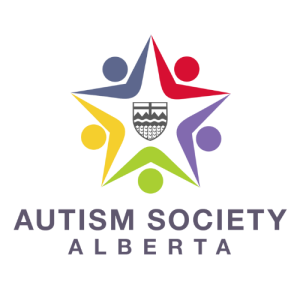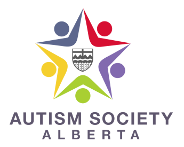Simple Gifts
 It’s almost the end of the year! Sound the trumpets! Good things are coming!
It’s almost the end of the year! Sound the trumpets! Good things are coming!
I love New Year’s – not because of the big parties (those don’t happen for us anymore) and not because of the idea of resolutions (as if we don’t already have enough on our plate) – but because it’s a time to reflect.
The way my husband and I see it, New Year’s is not a time to resolve. We’ve already made three life-changing resolutions and as far as we’re concerned, that’s enough. The first time we resolved to change our life was when we had our daughter. The second was when we adopted our son, and the third came after our son’s diagnosis of Autism Spectrum Disorder, when we resolved to ‘learn from the [insert daily catastrophic moment here] and do better’ every single day. Seriously though, we find ourselves making the resolution to ‘try again tomorrow’ on a daily basis, so adding an annual ‘do better’ commitment is way too overwhelming.
Instead, we sit down on New Year’s Eve and make note of our successes over the last 365 days. We sip on bubbly while celebrating the simple gifts that fell into our laps and recharge as we look forward to another year of daily ‘do betters’. Truthfully, finding the simple gifts we encounter can be a difficult task. Sometimes they’re hidden. So here are six starter points to help you look inside your own gifted collection of messy, chaotic days.
1. Joyful Noise – In our house, it’s the constant chatter. The nonsense sentences, the laughter shared between us and our kids. The clapping of hands, the flapping of arms, the elephant feet across the floor… it’s happy noise. Without it, our home would be too quiet. (Sometimes I wish the joyful noise would take a back seat on Saturday morning – but still, this is a gift. A simple, cheerful gift.)
2. Adventure – In the past, we thought adventure meant to go out and seek experiences in the great outdoors. Adventure, we’ve come to realize, can be found within our own home. Going to the mall can be an adventure. Getting winter clothing on can be an adventure. Finding shoes that don’t cause colossal meltdowns is an adventure. ASD families don’t have to look for adventure – adventure seeks us. What a gift!
3. Peace – There are definitely times when our household is not at peace. We have learned how quickly a war can be waged between us and our child if we are missing a piece of the sensory puzzle. It is because those times are trying, exhausting and emotionally unsettling that we have learned to intensely enjoy the peaceful moments in our lives. We sincerely appreciate the calm moments spent reading books together, colouring or watching movies. In our home the moments are often brief – but they’re real. There is great peace in watching the ever-growing storm in your child’s body blow over. Embrace this simple gift.
4. Fine food – This needs no explanation. One should always celebrate food. Often and without abandon. Note: this pairs nicely with fine wine. Or cheap wine. Whatever is handy.

6. Connections – Each and every year we have made connections with the most incredible people. People like you. Parents who should have letters behind their name to indicate the level of knowledge, experience and support they can boast (but never will). Titles like John So-n-so BD ASS DAD or Linda What’s-her-name SPR MOM. Every year there are people who find us stumbling in the dark only to take our hands and tell us ‘this way’. We have the benefit of connecting with people who have cast away the surface nonsense of life and present themselves as raw, sincere souls who stand together. Simply stated, you are one of our greatest gifts.
So there it is. If you resolve anything this January, resolve to remember this: we are gifted. Realistically, nothing in our lives is simple so it’s important for us to remember to chow down on the plate full of happiness right in front of our faces.
Cheers to you and yours – and all the best in 2016!
Have You Checked Out Our Twitter Feed?

Integrated Transition Planning

- Families and young people will receive the information they need to make informed choices about supports and services after the age of 18 years.
- They will experience a more accessible, seamless transition process.
- Young adults will receive the support they need in order to successfully participate in their community.
- Service gaps and issues related to unmet needs in adulthood with be avoided.
Swimming With David
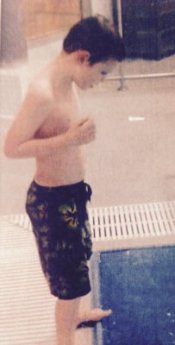 David LOVES to run. He likes to go out on his own adventures – which is just a nice way to say he likes to bolt, from the house, the car, the mall, or school. Anywhere and all the time, he likes to try and head out on his own little voyage. While we are always trying to stay a couple of steps ahead of him, there is always that fear that he will get out, and we will be just one minute too far behind him. Or he will break away from me in a parking lot and I won’t be able to catch his hand in time.
David LOVES to run. He likes to go out on his own adventures – which is just a nice way to say he likes to bolt, from the house, the car, the mall, or school. Anywhere and all the time, he likes to try and head out on his own little voyage. While we are always trying to stay a couple of steps ahead of him, there is always that fear that he will get out, and we will be just one minute too far behind him. Or he will break away from me in a parking lot and I won’t be able to catch his hand in time.
There are two variables that always have me worried: traffic and water. While I can’t control traffic, this fall we decided that we can take control of how David does in water. We have tried group lessons in the past, and to be honest it was a disaster. David needed so many breaks and had such a hard time following the directions it just didn’t work, last year we tried the AMAZING adapted group lesson offered at Red Deer’s G.H. Dawe Community Centre. My older daughter participates and has gained SO much: friends, confidence, and improved swimming skills! David participated with his helper, and he enjoyed it most of the time, but it still wasn’t addressing the issues that we were most concerned with. So after some chatting with his amazing swim coach, we started a private lesson with her based on the idea of teaching him water safety, boundaries, and what to do if he fell in. David has thrived! With the incredible support of his swim teacher Denise, he is starting to swim, he is floating, he is aware of the safety rules in the pool, and is becoming aware of what his body can do in the water. He leaves his lessons regulated and confident. It’s amazing to watch the joy on his face as he swims, and to see all the positive side effects.
Request for Proposals: Coordinating Cycle for Autism Alberta

In conjunction with the Autism Society of Edmonton Area, Autism Society Alberta intends to adopt and adapt their successful Cycle for Autism event to other regions in Alberta. For 2016, the targeted communities will be the city of Calgary and the city of Red Deer. The aim is to create a fun, family-oriented event that raises both awareness and resources for autism. It is our hope to expand this event beyond the Central Alberta and Calgary regions over time.
We invite you to offer us a proposal on your and/or your organization’s:
- Capability to execute the scope of work identified and deliver on the expected outcomes.
- Recommendations for any changes, additions, or deletions to the scope of work identified and/or to the expected outcomes identified.
- Cost for delivering the scope of work identified and the proposed modified scope of work (if one is presented).
Click here to read the full Request for Proposals, including Work Activities and Expected Deliverables and Outcomes.
We thank you in advance and very much look forward to receiving your proposal. As we have a Board meeting on April 30th, 2015, we are hoping that you may provide us with a proposal (can be in simplified format) before or by 2:00 pm on April 30th, 2015.
December Parent Group Meeting
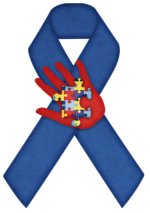
Parent Support Group Meeting
Monday, December 21, 6:30pm
Mohave Grill, 6608 Orr Drive, Red Deer (NOTE THE SPECIAL LOCATION)
Agenda:
- Gathering for some Christmas cheer!
Self-Employment Opens New Worlds for Autistic People
Gail Johnson
The Globe and Mail, December 1, 2015

But give him a set of instructions – for an IKEA bunk bed, a stationary bike or a deluxe barbecue – and he can build whatever is in front of him.
The man’s knack for putting things together goes way back to when he was growing up in Wabasca, Alberta. His father, Mark, a pilot, would give his son Lego and model-airplane kits to help keep him occupied. The younger Fremmerlid proved so adept at building things that he willingly began taking on increasingly complex projects.
His father recognized that this penchant for construction could be more than a hobby. Two years ago they launched Made by Brad, a business that allows the young man to do what he does best and be an active member of the community.
8 Tips for Mental Wellness During the Holidays
The holiday season is a busy time for most. There is so much to do, attend and plan, which can bring up feelings of being overwhelmed, anxious, stressed, and depressed. Conversely, this is also a time where people may feel acutely aware of the void left by the loss of a loved one, and their own personal loneliness.
Who is affected?
Holiday depression, anxiety and stress can affect anyone at any age. Sometimes, these feelings are triggered by a specific event or life experience. There are many things happening around the holidays that can act as triggers.

What can I do about this?
Holiday depression, stress, anxiety can be managed by following the tips listed above. Many people who experience depression, anxiety and stress during the holidays may think that they should just be able to ‘get over it’ on their own. Others may need time to recognize how deeply this affects their life. If your holiday depression, anxiety or stress seems severe or is interfering with your job or home life, talk to your doctor. Many people’s benefit plans run January to December. It could be beneficial to check into your plan before the end of the year so you can use sessions before they expire.
How can I help a loved one?
Supporting a loved one who is experiencing holiday depression, anxiety or stress can be difficult. You may not understand why your loved one feels or acts a certain way. Some people who experience this feel like they have to do things a certain way or avoid things or situations, and this can create frustration or conflict with others. You may feel pressured to take part in these behaviours or adjust your own behaviours to protect or avoid upsetting a loved one. Support can be a delicate balance, but you should expect recovery—in time. Here are some general tips:
- Ask your loved one how you can help them.
- Be patient—learning and practising new coping strategies takes time.
- If your loved one is learning new skills, offer to help them practice.
- Listen and offer support, but avoid pushing unwanted advice.
- Set boundaries and seek support for yourself, if needed.
We Want to Hear From You!
Families Foward Meeting on Housing Options
Families Forward is a mentorship support group designed for families supporting both adults and children with disabilities. This group meets on the third Thursday of every month, 7 to 9 p.m., at Gateway’s office, 104, 18304 105th Ave.
Housing Options is the topic for our next meeting on January 21. Providing opportunities for independent living sometimes requires creative solutions. We will explore housing opportunities that align with your loved ones’ vision, goals, and needs. Meet families that have approached housing in different ways and join in on a discussion about housing solutions.
To learn more about Families Forward, visit the Gateway Association site at http://www.gatewayassociation.ca/
To Siri, With Love:
How One Boy With Autism Became BFF with Apple’s Siri
Judith Newman
The New York Times, October 17, 2014
Gus: “You’re a really nice computer.”
Siri: “It’s nice to be appreciated.”
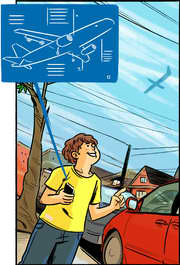
Siri: “Thank you, but I have very few wants.”
Gus: “O.K.! Well, good night!”
Siri: “Ah, it’s 5:06 p.m.”
Gus: “Oh sorry, I mean, goodbye.”
Siri: “See you later!”
That Siri. She doesn’t let my communications-impaired son get away with anything. Indeed, many of us wanted an imaginary friend, and now we have one. Only she’s not entirely imaginary.
This is a love letter to a machine. It’s not quite the love Joaquin Phoenix felt in “Her,” last year’s Spike Jonze film about a lonely man’s romantic relationship with his intelligent operating system (played by the voice of Scarlett Johansson). But it’s close. In a world where the commonly held wisdom is that technology isolates us, it’s worth considering another side of the story.
It all began simply enough. I’d just read one of those ubiquitous Internet lists called “21 Things You Didn’t Know Your iPhone Could Do.” One of them was this: I could ask Siri, “What planes are above me right now?” and Siri would bark back, “Checking my sources.” Almost instantly there was a list of actual flights — numbers, altitudes, angles — above my head. I happened to be doing this when Gus was nearby. “Why would anyone need to know what planes are flying above your head?” I muttered. Gus replied without looking up: “So you know who you’re waving at, Mommy.”
Gus had never noticed Siri before, but when he discovered there was someone who would not just find information on his various obsessions (trains, planes, buses, escalators and, of course, anything related to weather) but actually semi-discuss these subjects tirelessly, he was hooked. And I was grateful. Now, when my head was about to explode if I had to have another conversation about the chance of tornadoes in Kansas City, Mo., I could reply brightly: “Hey! Why don’t you ask Siri?”
Parents of Disabled Child Have to Save for Three
Brenda Bouw
The Globe and Mail, December 16, 2015
 Retirement planning is challenging for many Canadians, but it’s much more complicated for couples like David Jardine and Deborah Barrett, who have a child with a developmental disability.
Retirement planning is challenging for many Canadians, but it’s much more complicated for couples like David Jardine and Deborah Barrett, who have a child with a developmental disability.CDSP Newsletter Offers RDSP Info
The Registered Disability Savings Plan (RDSP), a tax-assisted savings vehicle designed to help ensure the long-term financial security of Canadians with severe disabilities, has now reached over 100,000 plans opened. The Canada Disability Savings Program newsletter offers the latest news and updates on the RDSP program. Here are a few excerpts from the November 2015 issue:
Qualifying Family Member

Family Income Thresholds for the Bond and Grant
The annual amount of government contribution (grant and bond) is based on the beneficiary’s family income, as established on income tax filings from two years prior to their application.
For the grant, the beneficiary’s family income threshold for 2015 is currently $89,401 or less to receive a 300% matching rate for the first $500 in contribution and a 200% matching rate for the next $1,000 in contribution. A beneficiary with a family income above $89,401 will receive a 100% matching rate for a maximum of $1,000.
For the bond, the beneficiary’s family income threshold for 2015 is $26,021 or less to receive $1,000 in bond. No amount of bond is paid if the family income is more than $44,701. When the family income is between $26,021 and $44,701, the amount of the bond progressively decreases as the family income increases.
New Grant and Bond Application Form
A new application form for Canada Disability Savings Grant (grant) and Canada Disability Savings Bond (bond) has been developed and is available from Service Canada to financial institutions offering RDSPs, as well as current and potential holders of an RDSP. Improvements to the form include the consolidation of the two previous application forms into a single form, streamlining and simplification of certain sections to reduce repetition and increase general ease of use, and the addition of information for holders and beneficiaries to help them better understand how the information collected will be used. The new form is available online by clicking here. Please keep in mind that completed application forms must be submitted through a participating financial institution, and should not be submitted to ESDC or Service Canada directly.
Click here to read the full newsletter
Holiday Wishes from Autism Alberta
Autism Alberta would like to wish you and your loved ones a joyous holiday season and a happy new year. We look forward to joining you in another year of striving, learning, and working to create better lives for people with autism and their families. See you in 2016!
